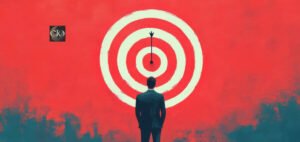Wisdom typically refers to the ability to make good judgments and right decisions, a superiority over intelligence or knowledge. Education may endow an individual with knowledge and technical knowledge, but wisdom is shaped by people’s experiences. Failure or success experiences shape the way one sees life, relationships with people, and decision-making. Through experiencing the dilemma between profession and life, people gain knowledge which cannot be gained through books. Wisdom is not just a stockpile of information but a concentrated observation achieved through living, thinking, and adjusting to different circumstances. Wisdom helps people to connect with life in harmony, projecting ahead of time probable repercussions, and reacting appropriately and ethically sufficient. Wisdom never functions in a straight line. There are obstacles and possibilities to be considered, be in control of one’s feelings, and have self-awareness. Failure, disappointment, or surprise success equip one with the power to see things in a nuance and expectation. Each experience contributes a lesson that grounds one’s improvement, where not only does one learn what to do, but how to be wise and compassionate. Through complete living, rather than shunning pain or the unknown, human beings acquire resilience, tolerance, and an appreciation for richness in the human being.
Reflection as a Path to Wisdom
Reflection plays a central role in living becoming wisdom. To be aware of oneself does not necessarily mean knowing more. Human beings are required to think intentionally about what they do, how they react, and what results from their decision. Reflection allows human beings to see patterns, learn from mistakes, and bask in triumph. Through reflective consideration of experience, individuals are able to draw conclusions which may be applied in the future. This results in planned learning and avoids cyclical error and improvement. Lacking reflection, experience may be ignored and wasted, and individuals are susceptible to repeated error or lost opportunity. Reflective thinking also enhances self-awareness, which is crucial to good decision-making.
By introducing personal values, weaknesses, and strengths into the context of prior experience, individuals construct a more defined picture of motivation and priority. Personal information makes judgment more incisive by channeling action towards adherence to principle and forging decisions both strategic and moral. Reflection converts ordinary experience into deep insight, and individuals can confront complexity with confidence and clarity. At work, this is greater leadership ability, improved teamwork, and increased problem-solving, and in life as greater relationships, emotional intelligence, and more purpose.
Growth Through Adversity
Challenges build wisdom. Difficult situations tend to push people outside of their comfort zone, testing their patience, resilience, and flexibility. Under adversity, people are faced with uncertainty, consequences, and problem-solving. It is realistic learning in human nature, society, and personal weaknesses. Adversity successfully overcome will usually have a likely effect of hardening one up to be more strong-willed, more sympathetic, and develop a mind as good as ambition and humility. For instance, overcoming professional setback can develop persistence, adaptability, and networking, and overcoming personal tragedy can develop sympathy and understanding for another people’s tragedy.
Challenges also enhance problem-solving and critical thinking. When confronted with failures, one is forced to weigh risks, challenge the method of functioning, and come up with new solutions. Such life experience develops a strong cause-and-effect understanding that also enhances one’s capacity for anticipating outcomes as well as making wise decisions. Struggle loads one with utilitarian skills but also with emotional intelligence to succeed in intricate social as well as work environments.
Integrating Lessons into Life
Wisdom is of most use when it is applied from time to time in everyday life. Experience teaches an individual thing, but application makes the lesson stay. Individuals who apply their lessons in the workplace and everyday life demonstrate better decision-making, people skills, and good judgment. They exercise foresight, empathy, and strategic thinking and apply lessons of yesterday to guide tomorrow’s action. It is a cycle of learning informing behavior and experience vindicating more wisdom. For example, a manager, who has learned from past unsuccessful projects, will be able to develop a culture of collaboration and accountability that will benefit the team and organizational performance.
In addition, when lessons are articulated from one’s own experience, there is more influence. Mentorship, learning, and transmission enable one to share the value of experience with other individuals and promote overall development. Through lessons set and well transmitted, human beings not only consolidate their own knowledge but also contribute to building communities, organizations, and society in general. In this way, personal experiences are a treasure house of knowledge, transforming one’s own nature along with the general environment in which one lives.
Conclusion
Wisdom gained from experience is something that requires effort, consideration, and intentional behavior. The experiences themselves are not sufficient to provide insight; they have to be interrogated, translated, and used judiciously. By accepting reflection, persevering through adversity, and transferring lessons to daily life, individuals gain a sort of wisdom that will inform choices, characterize individuals, and make individuals stronger in relationships. Knowledge that is born of individuals’ own experiences allows them to live generously, wisely, and in integrity. It makes adversity become learning, constructs resilience and empathy, and yields a bountiful, fruitful existence. Finally, wisdom that has been born of experience allows human beings not only to gain a clearer understanding of the world but to enrich other human beings’ existence.
Read Also: Servant Leadership: 7 Timeless Lessons for Modern Leaders




